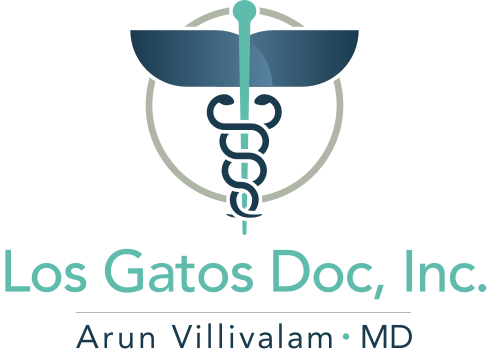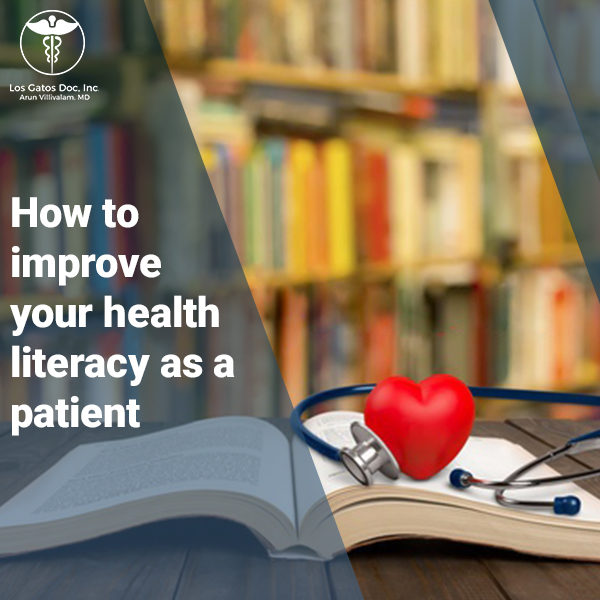October is Health Literacy Month, founded in 1999 by Helen Osborne, a health communication expert. The initiative aims to bridge the communication gap between primary care providers and patients, empower patients with ready access to medical information, and help decipher it accurately with guidance from healthcare providers.
The US healthcare system is complex and making health decisions can be a puzzle for most patients. This article breaks down what healthcare literacy means and a roadmap for you to navigate health information easily.
What Is Health Literacy?
The definition of health literacy has evolved over the years. The US Department of Health and Human Services (HHS) provides the latest definition in Healthy People 2030 to include the following components of personal and organizational health literacy:
- Emphasize using health information rather than only understanding
- Focus on making “well-informed” decisions rather than “appropriate” ones.
- Incorporate a public health perspective.
- Acknowledge that organizations have a responsibility to address health literacy.
Why Is Health Literacy Important?
Health literacy is directly connected to a patient’s health outcomes. As a patient, it’s crucial for you to fully process, analyze, and understand the various medical information and treatment choices available to you from healthcare services, educational brochures, test results, treatment risks, and medication dosage benefits.
According to The Institute for Healthcare Advancement, many patients find it difficult to read, comprehend, and implement the health information and advice given to them. The reasons are varied, such as the use of medical terminology unfamiliar to the general public, cultural barriers, or limited English proficiency. Low health literacy is more pronounced in certain groups, including older adults, minorities, immigrants, people of lower socioeconomic status, and the disabled.
Low health literacy is linked to a higher risk of death, more emergency room visits, inpatient admissions, and hospitalizations as per the Agency for Health Care Research and Quality Report.
On the other hand, strong health literacy improves your educational skills and boosts your confidence to make informed health decisions for yourself and your family and be vociferous advocates to political leaders and health policymakers.
Health literacy becomes more critical now more than ever in the COVID-19 pandemic. Everyone needs to be informed and educated about the current healthcare system, crisis, and preventive treatment against the coronavirus.
How to become more health literate?
Building your health literacy skills involves skills of reading, listening, speaking, analysis, decision-making, and applying these skills towards health improvement.
The first step towards building your health literacy skills is to find a credible primary doctor near you. The next step is to forge a long-term relationship with him/her by trusting their healthcare knowledge, experience, and wisdom. Ask all your questions about your health challenges, Treatment options, medications, and procedures. The only way you and your physician can arrive at the best decision for your health is to have an open dialogue and have your queries answered. Do all the fact-checking and verification with your doctor, and seek additional information, if needed.
You can go a step further and seek reliable sources of medical information available to the general public. While a Google or internet search can provide you with answers to your queries, it may not always be credible and accurate. Your primary care physician can help you provide the best online sources, references, and books to boost your health literacy levels.
How Los Gatos Doc helps build our patients’ health literacy skills ?
At Los Gatos Doc, we are committed to improving our patients’ lives, and health literacy is at the cornerstone of our quality healthcare services. Our team believes in a two-way communication approach. We actively and patiently listen, address all questions, and are involved in a shared decision-making process.
As an inclusive team that caters to a diverse population, we fully understand the implication of cultural differences, socioeconomic status, and other factors that affect the health literacy of our patients. Dr. Arun Villivalam, who is sensitive to his patient’s diverse cultural backgrounds, and speaks English, French, Spanish, Telugu, and Kannada, adapts his approach to best suit his patient’s background.
While we use the medical terminology with our colleagues and staff, we adopt a simple layperson language when communicating with our patients. This is reflected in all our patient-centric messages on social media, email newsletters, blogs, videos, webinars, workshops, and wellness programs that aim to improve health literacy in our community.
Final Thoughts
Staying in line with this year’s theme of Health Literacy Month – “Be a Health Literacy Hero,” Los Gatos Doc truly believes that each of us can do our bit in spreading the right medical knowledge and sharing credible information for the greater good of public health.
We can all be worthy health literary heroes when we join forces, work towards sharing our knowledge, and have an open dialogue on health issues.






